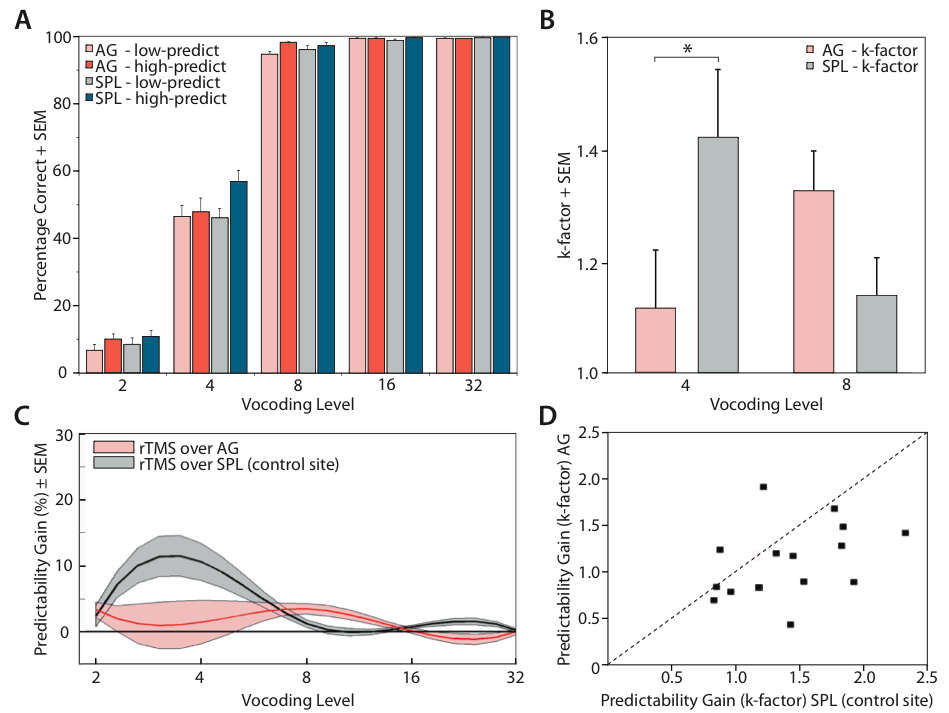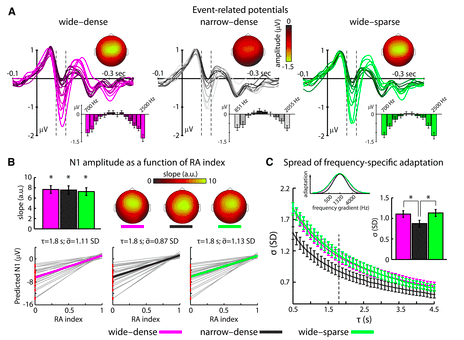Congratulations to Auditory Cognition’s very own Molly Henry who, with Björn Herrmann and Jonas Obleser, is about to publish yet another PNAS paper:
Entrained neural oscillations in multiple frequency bands co-modulate behavior
Henry MJ, Herrmann B, & Obleser J. PNAS, in press.
We are very excited about this one, as it harks back to Molly’s 2012 PNAS paper yet ups the ante somewhat: How do neural oscillations behave towards a more realistically complex mixture of acoustic regularities, and how does listening behaviour change as a function of various neural entrained phases?
read a short summary here…
Our sensory environment is teeming with complex rhythmic structure, but how do environmental rhythms (like those present in speech or music) affect our perception? In a human electroencephalography study, we investigated how auditory perception is affected when brain rhythms (neural oscillations) synchronize with the complex rhythmic structure in synthetic sounds that possessed rhythmic characteristics similar to speech. We found that neural phase in multiple frequency bands synchronized to the complex stimulus rhythm and interacted to determine target-detection performance. Critically, the influence of neural oscillations on target-detection performance was present only for frequency bands synchronized with the rhythmic structure of the stimuli. Our results elucidate how multiple frequency bands shape the effective neural processing of environmental stimuli.
Stay tuned until after PNAS embargo has been lifted!
[
UPDATE]
PNAS paper is online. Check it out here.
References
- Henry MJ1, Herrmann B2, Obleser J1. Entrained neural oscillations in multiple frequency bands comodulate behavior. Proc Natl Acad Sci U S A. 2014 Oct 14;111(41):14935–40. PMID: 25267634. [Open with Read]
Our sensory environment is teeming with complex rhythmic structure, to which neural oscillations can become synchronized. Neural synchronization to environmental rhythms (entrainment) is hypothesized […]


